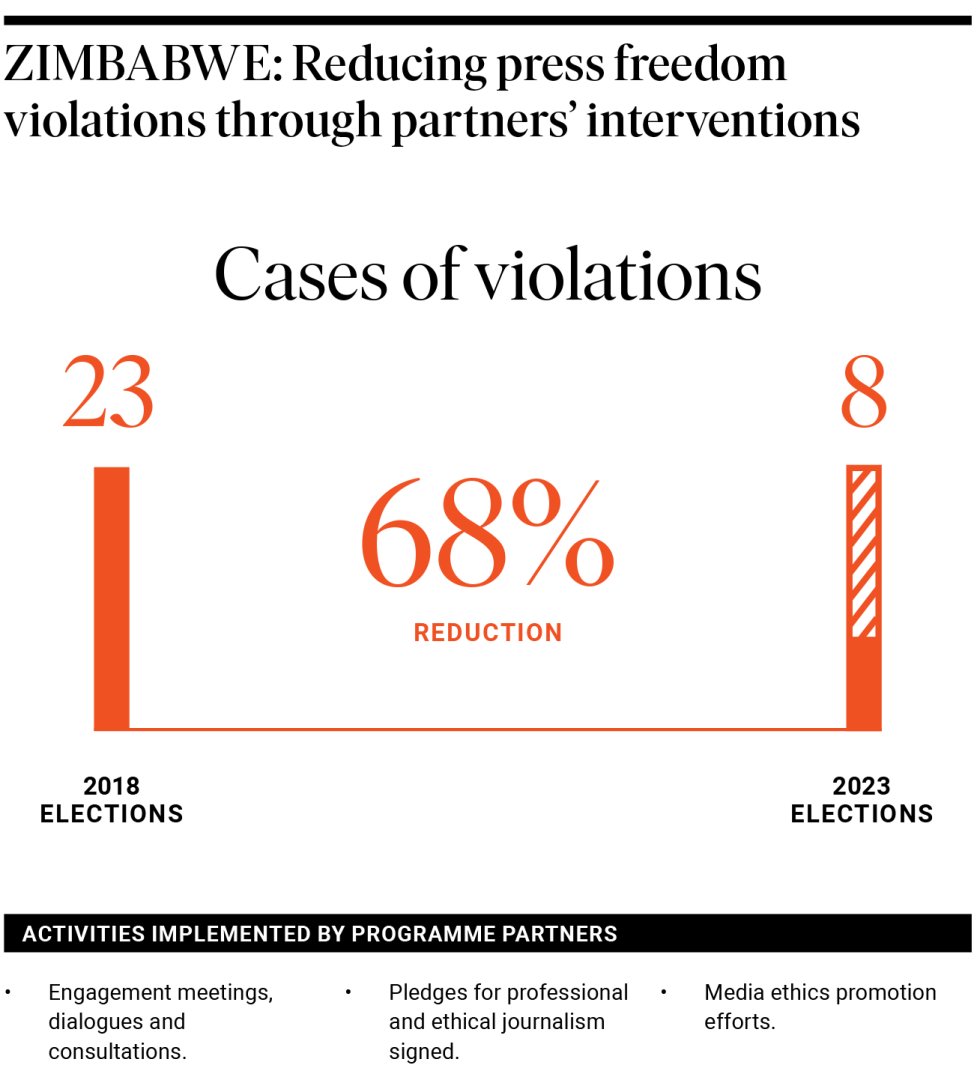
An event hosted by IMS partner Afghan Journalists Safety Committee. Photo: AJSC
Creating safer conditions for journalists
IMS partners are working to improve the physical and mental wellbeing of journalists.
Mental health support for Afghan journalists
Nearly 700 media personnel in Afghanistan received mental health training and counselling in 2023. IMS’ partner the Afghan Journalists Safety Committee (AJSC) developed psychosocial support training in the wake of 2021 political developments. Since then, Afghan society, particularly women, have faced challenges in navigating new realities which have affected education, employment and personal freedoms.
United Nations human rights experts say the Taliban’s return erased 20 years of progress on the rights of women and girls in the deeply patriarchal society. The situation has exacerbated an existing mental health crisis in a country that had endured four decades of conflict and trauma, health experts say. Although no official figures have been released, media reports claim that there has been an increased rate of women and girls taking their own lives.
AJSC identified the need to continue giving journalists strategies to cope with stress and trauma to improve their resilience. IMS’ gender coordinator helped ensure the training had a gender-sensitive approach and highlighted that Afghan women journalists had expressed a strong demand for the training.
Five hundred and forty-three men and 156 women journalists participated in the mental health training. The sessions introduced mental health and covered self-care strategies as well as depression, anxiety, fear and other mental illnesses. After the group sessions, individuals were offered one-on-one counselling sessions.
“I was depressed after I lost my job as a reporter last year. Life was bitter. My mental health was deteriorating but one day I received a call and was invited to an AJSC psychosocial support programme. The programme greatly helped me to regain control of my life. The counselling sessions enabled me to deal with my mental issues in a healthy way,” one participant said.

Alert system for Philippine journalists goes live
In 2023, the Philippines Commission on Human Rights finalised an alert system for reporting threats and attacks against journalists. Alisto, a Viber-based reporting system which launched in early 2024, is part of the commission’s strategy to increase its role in improving journalist safety using the 2019 Philippine Plan of Action on the Safety of Journalists.
IMS has supported the plan of action and its implementation along with the EU, Danida, UNESCO and media partners. According to executive director Jacqueline Ann de Guia, the commission has invested time and resources into expanding efforts to protect journalists. She attributes her participation in an IMS-led forum in Nepal in November 2022 to helping inspire “a more deliberate and strategic approach”.
Previously, the commission focused on reporting attacks against journalists to other agencies and monitoring the situation. It is now taking a more hands-on role, including strategic litigation, victim assistance, witness protection, advocacy and awareness raising.
Last year the Philippines was eighth on the Committee to Protect Journalists’ global impunity ranking of countries with the worst records of prosecuting killers of journalists in the past decade. Journalists in the Philippines frequently experience death threats, legal and physical attacks, coordinated disinformation campaigns by troll armies, as well as “red-tagging”, in which authorities discredit journalists and media organisations by labelling them communist rebels and terrorists.
The National Union of Journalists of the Philippines says members of the police force, the military and local and national government officials have been linked to attacks on journalists. Politicians and powerful private individuals are also responsible for the continued harassment and threats against journalists in the Philippines, according to a 2023 report by the US State Department.
“We stress the need to confront the factors which breed a climate of impunity in the country and imperil the lives of journalists. More than ever, the Commission on Human Rights is always ready to take part in this process to ensure that our fourth estate remains a pillar foundational to our democracy,” the commission said in a statement.
The Alisto reporting system was inspired by another alert system developed under the IMS Philippines programme.
Turning the tide on journalists’ arrests in Somalia
In November 2023, journalists, police, judges and local authorities attended a regional forum in Dhusamareeb, in the central Somali state of Galmudug, to discuss ways to improve their working relationship. IMS’ partner Somali Media Association (SOMA) organised the forum.
In recent years, several journalists in Galmudug have been detained or arrested because local authorities were upset by critical stories or interviews conducted on sensitive topics. Galmudug was among the states with the highest number of arbitrary arrests of journalists, according to the Somali Mechanism of Safety of Journalists (SMSJ), also an IMS partner.
At the meeting, Galmudug officials promised to respect press freedom and stop the practice of arresting journalists without court warrants. Police and judges made a similar vow. Three months after the regional forum, Galmudug police refused a district commissioner’s order to arrest, without a warrant, Abdishakur Salad Dhoore, a local journalist whose reporting had angered the district commissioner. SOMA also organised a similar forum in the Somali state of Hirshabelle, where journalists have also faced arbitrary arrests for their reporting.
This article was originally published in the IMS Annual Report 2023.




